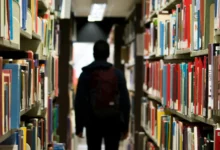Harvard’s applications decline amid unrest
This year, fewer students applied to Harvard College despite record-breaking enrollment at numerous other highly selective universities. The decline raises the possibility that Harvard’s image was damaged by a year of unrest that intensified when a student letter said Israel was “entirely responsible” for the Hamas strikes on October 7.

On Thursday, the eight Ivy League institutions handed out their Ivy Day messages of acceptance or rejection, coinciding with Harvard’s announcement.
Applications decreased at Brown University as well, but increased at many other prestigious universities, such as the University of Pennsylvania, Dartmouth, Columbia, MIT, Bowdoin, Amherst, and the University of Virginia. Harvard emphasised the good. William Fitzsimmons, dean of admissions and financial aid, remarked, “We are delighted by the stunning array of talents and lived experiences the class of 2028 will bring with them from throughout the US and around the world.”
Although it is impossible to determine the exact causes of Harvard’s declining enrollment, college advisors and admissions specialists acknowledged that a close examination has been conducted. On June 29, the Supreme Court rendered a landmark judgement that invalidated Harvard’s long-standing affirmative action programme, which has served as a template for other universities. The first black president of Harvard, Claudine Gay, resigned on January 2 as a result of it. She was then accused of plagiarism in her academic writing and drew criticism for her evasive evidence on antisemitism before a House inquiry in December.
According to a private college admissions counsellor, autumn semester worry regarding campus atmosphere was especially high. “Students were terrified about the doxxing trucks, the CEOs calling for protester names, and students losing job offers for speaking up about Israel-Palestine,” he said. “That drove some applicants to less-spotlight schools.” However, some families—Jewish families included—were unaffected by the negative press. “It’s still an honour to be accepted to Harvard,” said Rivka Scheinfeld, whose daughter got admitted.
Harvard received 54,008 undergraduate applications throughout this admissions year, down 5% from 56,937 the previous year. This maintains a pattern that started with the 17% decrease in early applications. The number of regular applications decreased by 3%, from 47,384 to 46,087. Harvard said that, in spite of the drop, over 50,000 applications were received for the college for the fourth consecutive year.
Despite criticism directed at Elizabeth Magill, the state’s then-president, for her legalistic testimony on antisemitism before the House committee, Pennsylvania had record applications—65,230—a nearly 10% increase from the previous year. A notable distinction between Harvard and Penn is that Magill left the university quickly—on December 9, only four days after testifying. Gay, who gave testimony that day, held the office of president until January 2.
Although less than 5% of Ivies applied to Brown this year, the school still had the third-largest candidate pool in its history. A representative for Brown said that a longer application with extra essay questions turned off some applicants. Both Yale and Dartmouth reported record numbers of applicants, both 10% more than the previous year. Applications increased by almost 5% at Columbia and MIT, which were also in the headlines due to student demonstrations.







